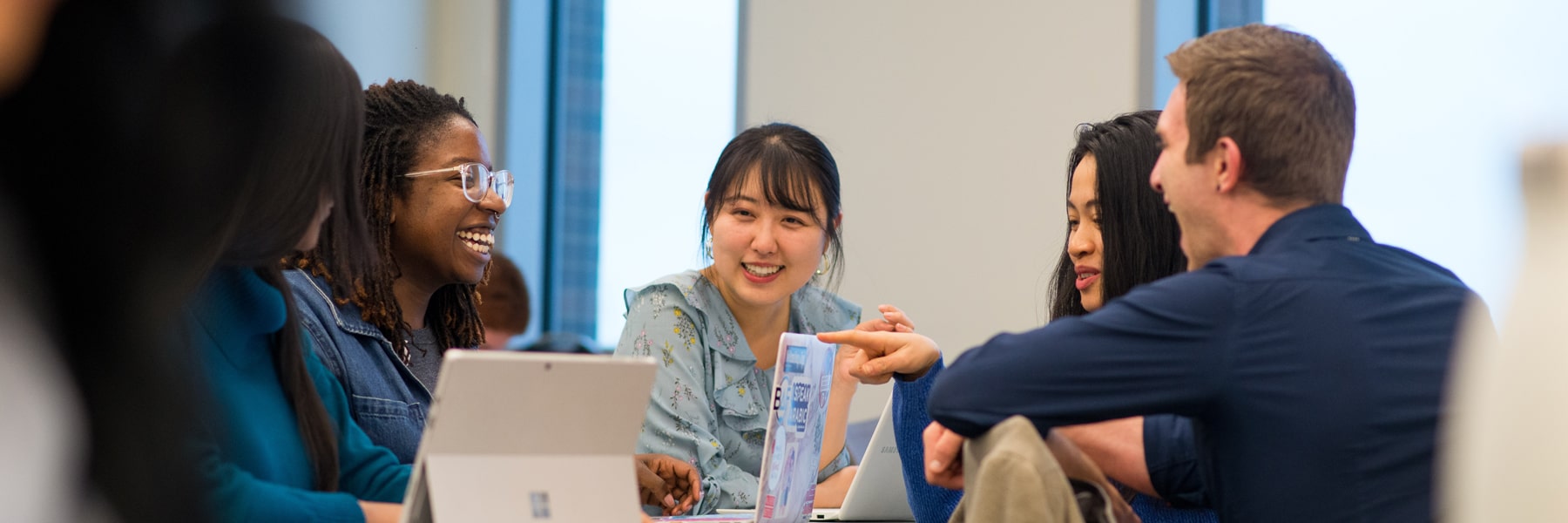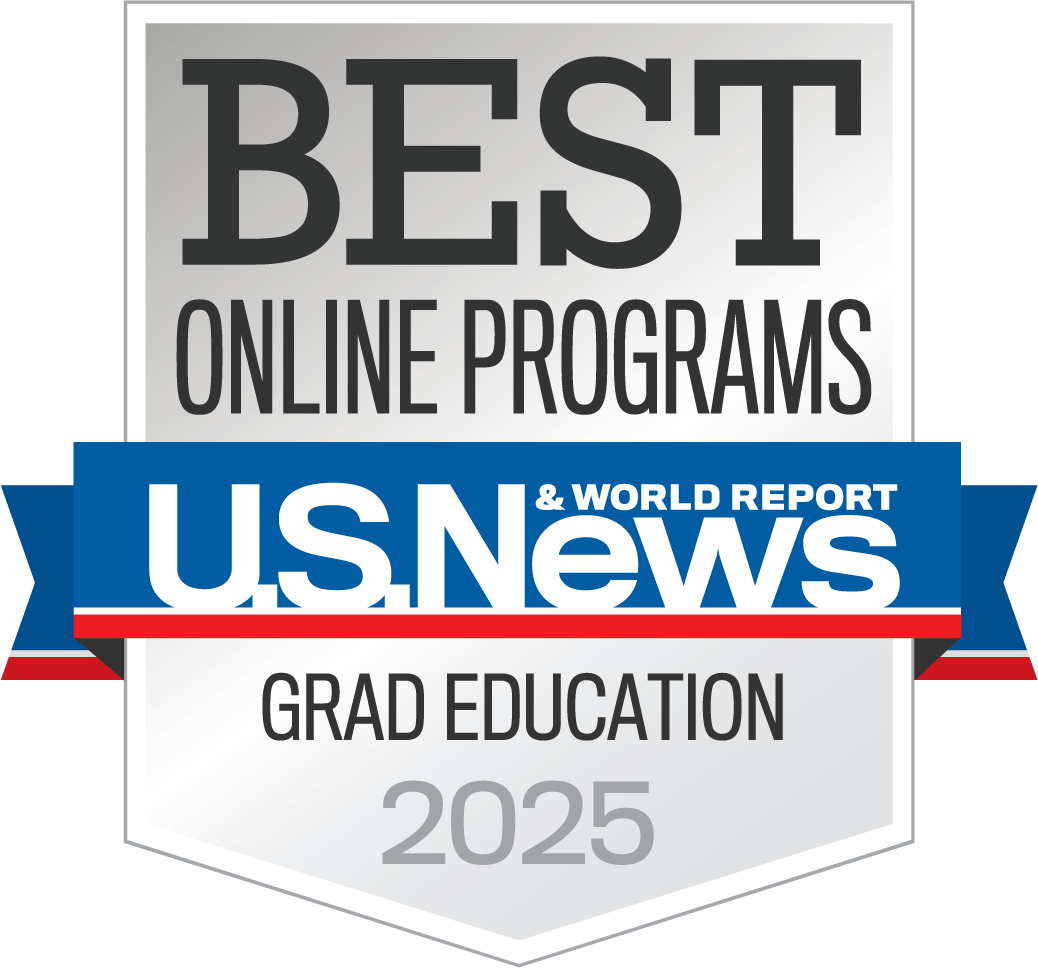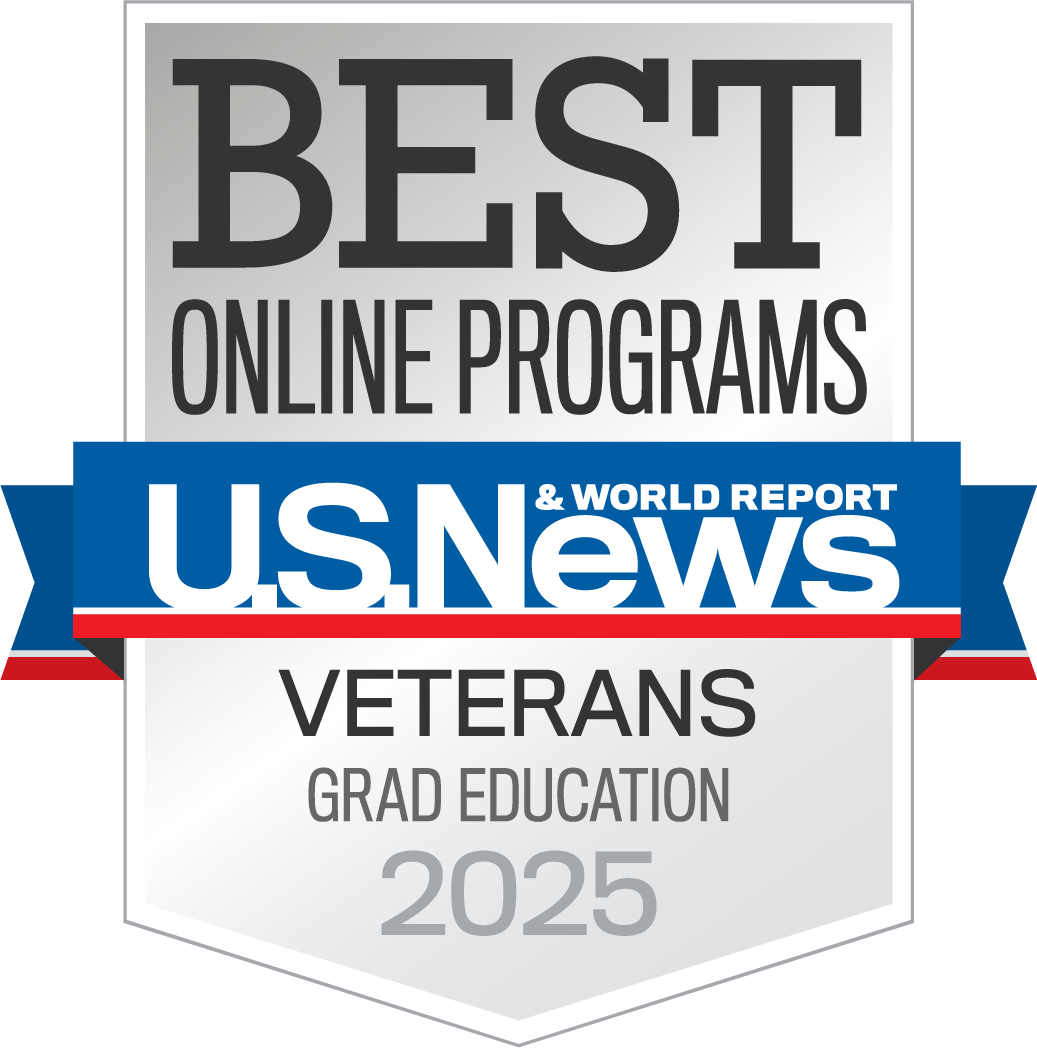Plan Your Education
How to Apply
Applicants must meet general graduate admission requirements in addition to the following program-specific requirements:
- Candidates must have at least a 3.0 undergraduate grade point average, preferably in a relevant field of study, such as linguistics, anthropology, English, foreign language, history, political science, psychology, or sociology.
- Non-native speakers of English must submit a minimum TOEFL score of 600 on the paper-based test, or a 6.5 IELTS score.
- Candidates for the ESL and Bilingual Studies concentration may be asked to indicate proficiency in a language other than English at a level equivalent to two years of successful college study.
- Applicants should use the 1,200-word statement accompanying the application to directly address any areas of academic weakness in the application. A discussion of the applicant’s experiences in language study, language teaching/tutoring, travel, or living in other cultural settings is also appropriate, as is a discussion of the candidate’s career goals. The statement should specify the applicant’s interest in the ESL & bilingual education, or foreign language pedagogy concentration.
- Two (2) letters of recommendation from academic sources
Deadlines & Cost
Deadlines: February 1 (priority deadline) and April 1 (final deadline) for fall; October 1 (priority deadline) and November 1 (final deadline) for spring
Application Fee: The nonrefundable application fee is $75. UMass Boston alumni and current students who plan to complete degree requirements prior to graduate enrollment can submit the application without paying the application fee.
Estimate Your Program Cost: Get a feel for your expected program costs using the Graduate Program Cost Calculator.
Program Cost Information: For more detailed information on costs, please visit the Bursar's website or send an email to Bursar@umb.edu. Please refer to Graduate Student Financial Aid for more information on financial aid.
Curriculum
Core Courses (15 Credits)
- APLING 601 - Linguistics 3 Credit(s)
- APLING 603 - Language, Culture and Identity 3 Credit(s)
- APLING 605 - Theories and Principles of Language Teaching 3 Credit(s)
- APLING 621 - Psycholinguistics 3 Credit(s)
- APLING 623 - Sociolinguistics 3 Credit(s)
Concentration Courses (9 Credits)
Take three courses from one of the concentrations below.
ESL and Bilingual Studies Concentration
- APLING 614 - Foundations of Bilingual/Multicultural Education 3 Credit(s)
- APLING 618 - Teaching ESL: Methods and Approaches 3 Credit(s)
- APLING 690 - Field Experience 3 Credit(s)
Foreign Language Pedagogy Concentration
- APLING 611 - Methods and Materials in Foreign Language Instruction 3 Credit(s)
- APLING 612 - Integrating Culture into the Language Curriculum 3 Credit(s)
- APLING 690 - Field Experience 3 Credit(s)
Electives (6 Credits)
Complete two additional ApLing courses. Students also have the option to take two courses as electives in related disciplines that complement their specialization.
Field Experience & Practicum
Students working to obtain a master's degree are required to complete a Field Experience (APLING 690). The MA field experience requirement may be satisfied through teaching language in university undergraduate ESL classes, in a public school system, or at a community agency. Alternative paths to satisfying the Field Experience can be discussed with the Field Experience faculty member.
Students who are pursuing an initial K-12 ESL teaching license need to complete the student-teaching practicum (APLING 698). This is a requirement set forth by the Massachusetts Department of Elementary and Secondary Education (DESE) PK-12 ESL licensure in addition to their MA degree. The ESL licensure student-teaching practicum cannot be waived. Students working to obtain MA state licensure must student-teach in a PK-12 public school ESL/Sheltered English setting for one full semester.
Licensure in French as a Foreign Language from the Department of Elementary and Secondary Education
Students wishing to pursue licensure from the Department of Elementary and Secondary Education in French as a foreign language should choose a concentration in Foreign Language Pedagogy and complete the following courses when selecting electives. Students will complete six additional credits of coursework beyond the requirements for the degree.
- APLING 697 - Special Topics in Applied Linguistics 1-6 Credit(s) Topic: French Applied Linguistics
- APLING 698 - Practicum/Field Experience 3-6 Credit(s)
Three of the following:
- FRENCH 464 - Roman Du 20e Siecle 3 Credit(s)
or - FRENCH 465 - 20th Century French Theater 3 Credit(s)
or - FRENCH 305 - 20th/21st Century French and Francophone Literature 3 Credit(s)
or - FRENCH 490 - Special Topics 3 Credit(s) Topic: France/Maghreb
- FRENCH 307 - French and Francophone Popular Culture 3 Credit(s)
or - FRENCH 480 - Images of Otherness in French and Francophone Literature 3 Credit(s)
or - FRENCH 304 - French Conversation 3 Credit(s)
or - FRENCH 306L - Introduction to French Cinema (in French) 3 Credit(s)
- FRENCH 301 - Composition et stylistique 3 Credit(s)
or - FRENCH 411 - Theme et version 3 Credit(s)
For more information on curriculum, including course descriptions and degree requirements, visit the Academic Catalog.
Learning Outcomes
Upon completing their Master’s degree, students will be able to:
- understand language as a system with various levels of description (phonological, morphological, syntactic, semantic, and pragmatic)
- describe the structure and uses of English and compare it to at least one other language
- observe, describe, and analyze language in use in specific contexts;
- use current empirical tools such as computerized databases (corpora) to study language use and variation;
- take a critical look at language definitions (standard and non-standard varieties; creoles; grammar, etc.) and theoretical views on language and communication
- relate their knowledge about language-to-language instruction;
- present and discuss psychological phenomena common to learners of a second language or foreign language, and bilingual individuals, in particular processes, patterns, and stages of language development;
- discuss interaction between cognitive structures, linguistic and psychological factors and environmental and social factors during acquisition (role of input and interaction; interlanguage; age; influence of previously learned languages, multicompetence; scaffolding, and corrective feedback; motivation and attitudes);
- discuss the role of implicit and explicit learning.
- demonstrate knowledge of the ESL,Bilingual Education, and FL teaching history (methods and approaches; theoretical underpinnings; challenges, and “best practices”);
- discuss notions of communication and communicative competence in relation to teachers’ and learners’ roles;
- explain and propose solutions to minority and immigrant academic achievement;
- define and discuss the notion of academic language;
- discuss fluency and accuracy goals;
- understand the role of reading instruction in ESL, Bilingual Education, and FL contexts and different literacy models;
- discuss the need for critical pedagogy and critical literacy.
- deconstruct existing methods and invent their own teaching practices;
- create optimal language and literacy learning contexts where students can build on existing funds of knowledge in their ESL, Bilingual, or FL development;
- plan for reading, vocabulary, writing, and grammar instruction;
- prioritize content-based instruction and thematic-based units;
- use language technology to enhance learning and foster learners’ interactivity and creativity;
- apply critical pedagogy and critical literacy to particular contexts.
- illustrate the inextricable relationship between language and culture;
- present and discuss current sociolinguistic theory and research on language attitudes, language identity, and language and power;
- analyze how language policies and history create economic, social, and educational inequities that impact language development;
- analyze how language varies along the lines of gender, ethnicity, culture, and class;
- analyze how cultural identities may affect language learning and achievement; in particular oppositional identities and resistance in schools;
- explore and discuss various models of intercultural development and their teaching implications;
- use empirical processes (ethnographic observations and interviews) to explore others’ and own cultural perspectives and reflect on the concept of cultural mediation.
- demonstrate confidence and capacity to challenge one’s own professional practice and undertake improvement-oriented inquiry and innovation;
- develop skills and take action for reducing social injustice and promoting all dimensions of diversity linked to language use;
- become agents of social change in order to increase the accessibility of an excellent education for all language learners;
- discuss state guidelines and standards related to language education and access for all;
- discuss and analyze issues of equity and social justice in ESL, BE, sheltered English, English only mainstream, and foreign language classrooms.
Graduation Criteria
Complete 30 credits (ten courses) in Applied Linguistics while maintaining a 3.0 or better GPA.
Concentration: Students must choose a concentration in ESL and Bilingual Studies or Foreign Language Pedagogy.
Capstone: The Capstone Exercise is the culminating and integrative experience of students’ educational program in Applied Linguistics. It is an application of theory to practice activity in which students discuss theoretical issues and current research related to a prompt and apply them to practice and other professional or real-world applications. Students draw on the literature from their core and concentration courses and any other courses they may have taken as electives. This capstone exercise is usually completed in the student’s final semester of study.
Practicum & Field Experience: Complete either the MA field experience or the licensure practicum.
Residency: No more than twelve credits may be transferred in and applied toward the program electives; six credits from non-degree graduate study at UMass Boston and six credits of graduate course work from another institution. All transfer courses must be earned within seven years of program matriculation, have a grade of B or higher, be approved by the graduate program director and Graduate Studies, and not have been used to fulfill requirements for another degree.
Statute of Limitations: Five years.
Contact
Applied Linguistics Program
applied.linguistics@umb.edu

Applied Linguistics Department
UMass Boston's Department of Applied Linguistics in the College of Liberal Arts offers a diverse range of programs and research opportunities aimed at exploring theoretical linguistics, applied linguistics, and interdisciplinary areas of psycholinguistics and sociolinguistics.
Explore the Department of Applied Linguistics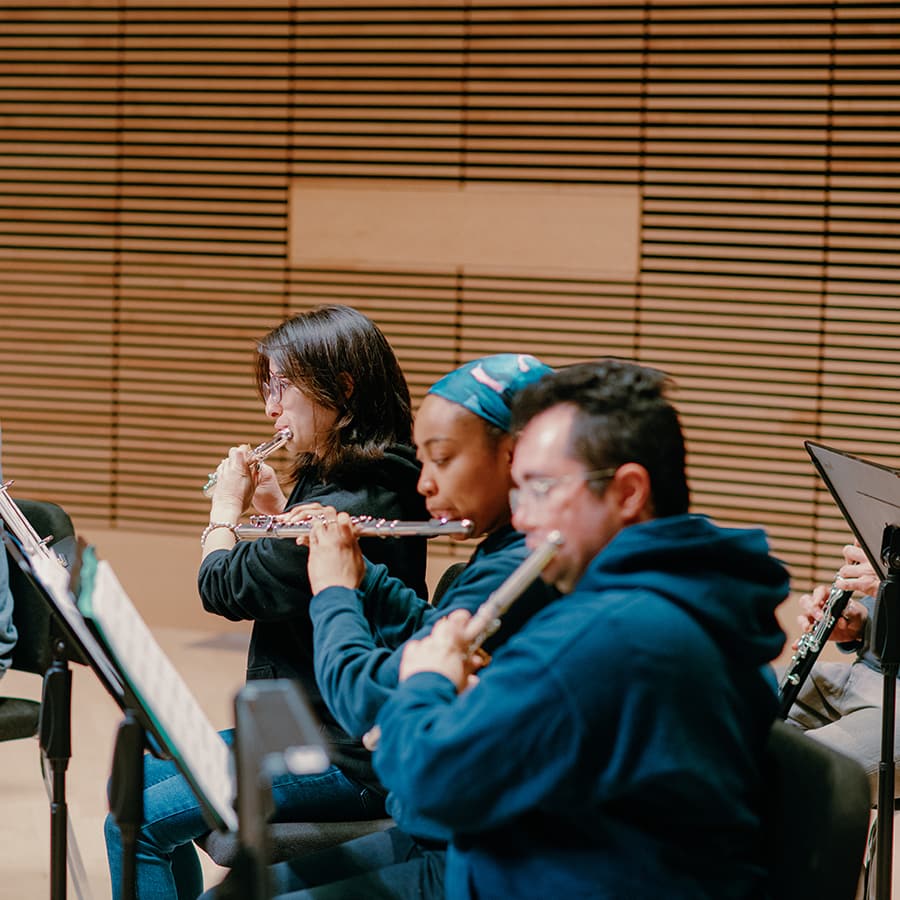
College of Liberal Arts
Learn more about the faculty, research, and programs that make up our College of Liberal Arts.
Explore College of Liberal ArtsNational Council for State Authorization Reciprocity Agreements (SARA)
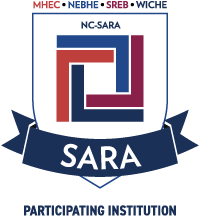
UMass Boston programs are designed to meet the requirements for licensure or certification in Massachusetts. Please contact your state licensing or certification board to determine whether the program meets the requirements for licensure or certification in other states.
Learn More about SARA
